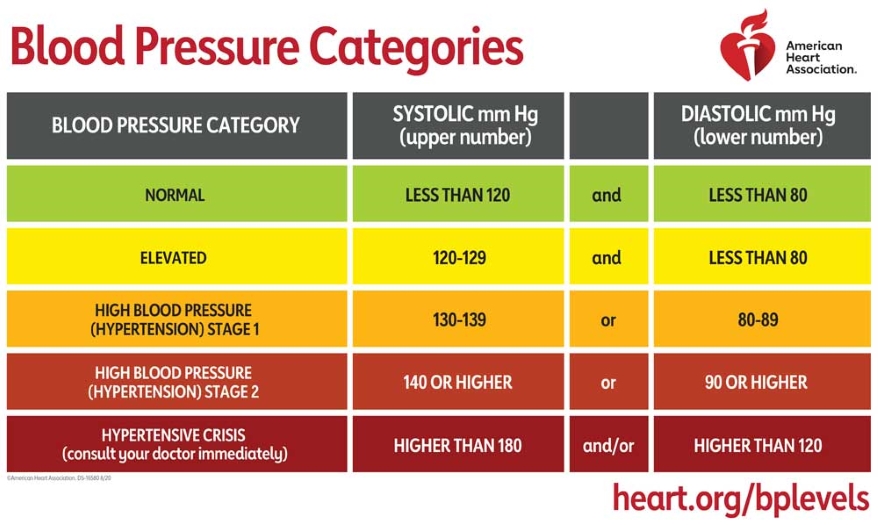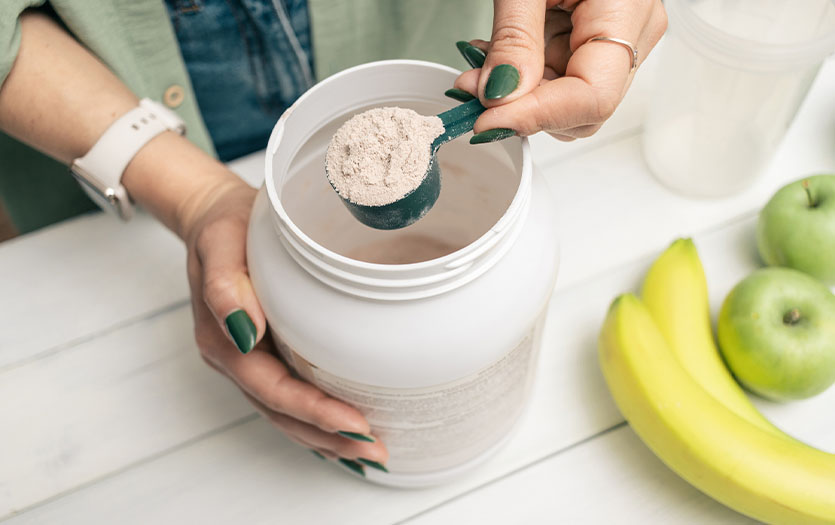
This post was written by Audra Deardorf, NP, PPG - Family Medicine.
High blood pressure, also known as hypertension, occurs when the force of the blood flowing through your body is consistently too high. According to data published by the Centers for Disease Control and Prevention (CDC), nearly half (48.1%, 119.9 million) of all adults have high blood pressure.
Over time, this chronic illness damages your arteries and can lead to complications like heart attack and stroke, which are the leading causes of death in the United States. But the good news is that this cardiovascular challenge is both preventable and treatable with practical lifestyle changes and medical guidance.
How do I know if I have high blood pressure?
We often refer to high blood pressure as the "silent killer" because it usually doesn't cause noticeable symptoms. A study conducted by the World Health Organization (WHO) indicated that 46% of people living with high blood pressure don't know that they have it. In fact, many individuals only become aware of their condition by accident during routine visits for unrelated issues.
I've heard numerous stories from patients saying something like, "I went to my dentist last week and my blood pressure was high, so they told me to come see you."
Unfortunately, individuals who otherwise appear healthy may not have been aware that they have a problem for a considerable amount of time, during which substantial and irreversible damage can occur.
The only way to know if you have high blood pressure is to measure it.
Blood pressure readings consist of two numbers:
-
Systolic pressure is the top number. It refers to the amount of pressure on your artery walls when the heart contracts/beats.
-
Diastolic pressure is the bottom number. It refers to the amount of pressure on your artery walls when your heart is not beating or contracting, so it is at rest.
The American Heart Association (AMA) provides this chart for ranking blood pressure readings. Knowing where your numbers fall can help guide your steps towards better cardiovascular health.

In most cases, symptoms only present once blood pressure reaches critical highs and can include:
-
Dizziness
-
Shortness of breath
-
Nausea and vomiting
-
Blurred or double vision
-
Nosebleeds
-
Confusion
If your blood pressure reading is 180/120 or higher and you experience any of the above symptoms, seek medical attention immediately.
What are the risk factors for high blood pressure?
Various factors contribute to high blood pressure. Some are controllable, while others are beyond your influence. Understanding both types is essential for taking preventive action or managing your condition more effectively.
Modifiable risk factors (those you can control):
-
Lack of physical activity
-
Smoking or vaping
-
Recreational drug usage
Nonmodifiable risk factors (what you can't control):
-
Family history of high blood pressure
-
Being over the age of 55
-
African American ethnicity
What are the treatment options for high blood pressure?
Treating high blood pressure usually requires a combination of medicinal and nonpharmacological therapies. I practice from a holistic approach, focusing on the lifestyle modifications each patient can realistically adopt. My goal is to help prevent or minimize those predisposing elements by addressing diet, physical activity, smoking and stress. This can look like:
Eat a variety of foods
-
Eat more fruits, vegetables, whole grains, legumes, nuts and seeds, fish and poultry.
-
Consume less processed foods, added sugars, refined grains, saturated and trans fats and fatty processed meats.
Remember my two rules.
-
Shop the perimeter of the grocery store. That's where the fresh food is.
-
If you have opened a package, you've done it wrong. Packaged foods are more likely to be processed and contain additives.
I frequently recommend the Mediterranean diet, which emphasizes plant-based foods. Recent studies have shown that this approach can lower risk factors for heart disease, such as high cholesterol and high blood pressure.
Learn more about the advantages of Mediterranean diets here.
Move your body
-
Aim for 150 minutes a week of moderate intensity aerobic activity.
-
Include moderate to high-intensity muscle-strengthening activities at least 2 days each week.
Prioritize stress relief
-
Make time to engage in fun activities.
-
Connect with others.
-
Take 20 minutes a day for yourself.
-
Practice gratitude and joy.
Additionally, stop smoking and limit alcohol intake as part of your overall well-being and strategy for lowering blood pressure.
When it comes to pharmacological treatments, you and your physician can choose from several medications. The ones that will be most effective are based on your blood pressure numbers, predisposing factors and other chronic medical conditions.
A recurring question I receive from patients is whether they are going to have to stay on this medication for life. Simply put, it depends. However, the majority of patients who implement and adhere to the necessary lifestyle modifications can come off the medication.
If you're concerned or unsure about your risk of developing high blood pressure, speak with your primary care provider or cardiologist.



